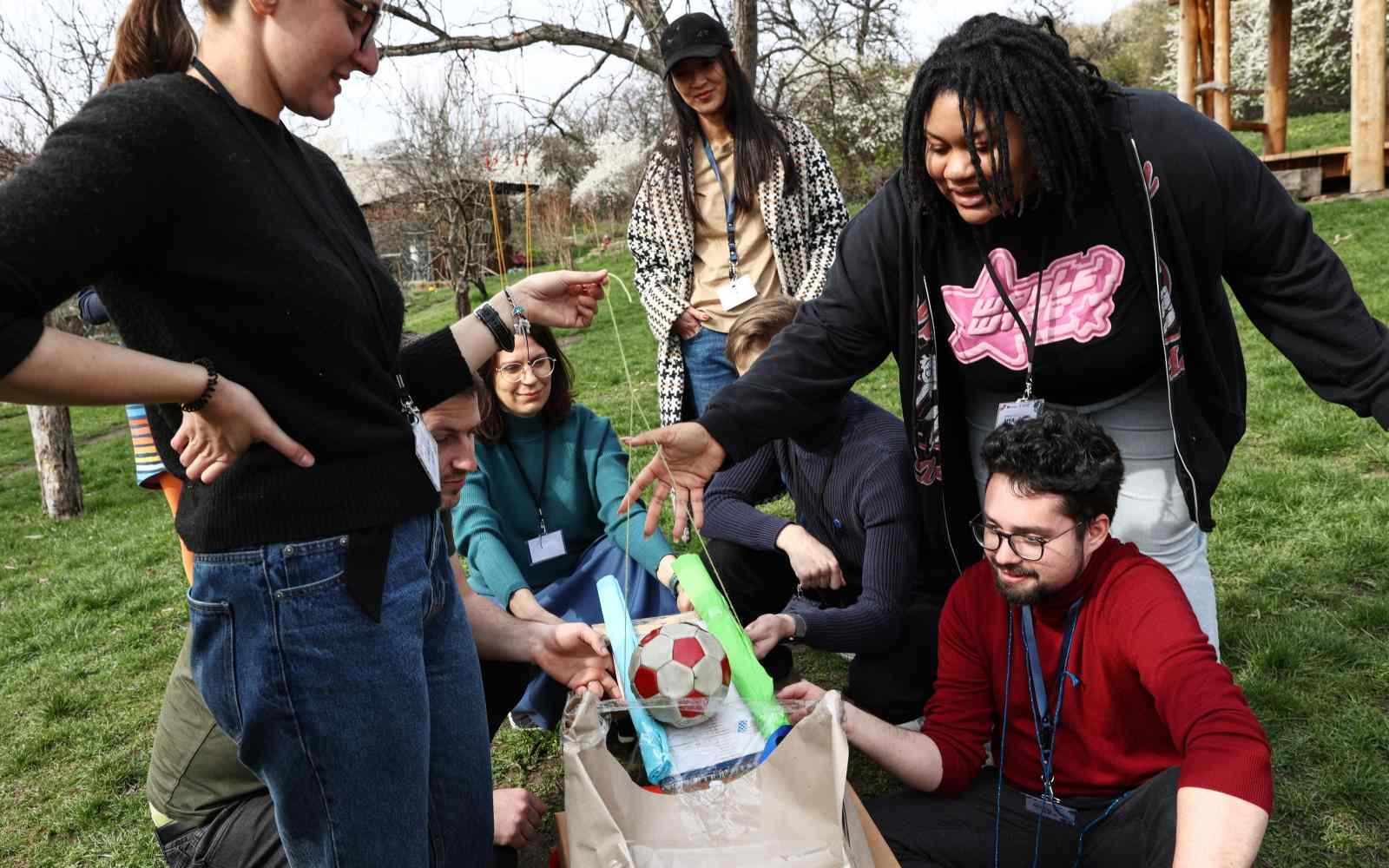When young leaders take the initiative, the future takes on new colours. We want every young person to have the power, empathy and skills to make positive changes in their communities. These competencies will enable them to prepare for the challenges of the future. Through the Youth Leadership for Emerging Future (YLEF) programme, young people who have an idea can build a team and solve social challenges that are close to them. In an international environment, young changemakers work on initiatives that will help build strong networks in crisis situations.
The rapid pace of change and the complexity of interconnected crises require new approaches and collective action. Youth Leadership for Emerging Future is a programme in which Ashoka, Save the Children and the Humanitarian Leadership Academy join forces to support local young leaders working for their communities and being catalysts for systemic change. Over the past few months, 36 young leaders from Poland, Ukraine, the Czech Republic and Slovakia have been getting to know each other and gaining skills that will enable them to respond quickly in the face of a challenge. Equipped with new knowledge, they have built teams that have just started working on four initiatives:
- Community Activists’ Workshop in Ukraine 'United’: Young leaders in Ukraine have united to support the development of the NGO sector and build a strong civic society. The 'United' project aims to bring Ukrainian social activists and leaders together to accelerate reform and develop a network of support. Through the workshop, participants will make valuable contacts with international organisations, which will help to share experiences, strengthen the Ukrainian NGO sector and improve the quality of action for people with migrant and refugee experience. LEARN MORE >>
- Innovation in crisis intervention - piloting Socialeasator: This is an innovative platform to connect socially engaged people, get expert advice, launch fundraising and learn together. Socialeasator simplifies the process of giving and receiving help, enabling people to quickly find solutions to health and social problems and build a supportive community. With Sociesator, users can deal with challenges more effectively, building a culture of mutual help. LEARN MORE >>
- Civic formation in higher education: Higher education has a huge impact on shaping young citizens, but the current system is not able to respond to the rapid pace of change. The project aims to start a public discussion between students, authorities and universities about the role of education in Europe in shaping civil society and initiating local change. By involving young people with refugee experience, the project amplifies their voice and promotes integration, and the publication on YouTube enables a broad discussion. LEARN MORE >>
- Youth Dialogue Forum 2024: The meeting aims to activate young people from Poland, Slovakia and the Czech Republic, helping them to identify barriers to social participation and propose concrete solutions. It is intended to encourage young people to get involved, speak up and respond to social issues around them. The project uses DEMDIS (the innovative software) to run digital discussion modules that will enable collaboration. A report with key findings from the Forum will provide a better understanding of the barriers that prevent young people from truly participating and taking leadership roles in social activities. LEARN MORE >>
Projects are developed in international teams with a variety of competencies, allowing young people to see the spectrum of issues affecting our region. Each group is supported by an experienced mentor from the Humanitarian Leadership Academy. The collaboration is based on mutual learning. The multifaceted nature of the activities also leads to the building of sustainable networks, which is one of the goals of YLEF.
‘People and their stories give me great energy and motivation. I am looking forward to the collaboration and the project we are working on. This is a great opportunity for me to establish strong international relationships,’ says Maria Andrukhiv, a leader of the ‘United’ project.
Creating the conditions for real, sustained youth engagement and intergenerational knowledge exchange is key to building a crisis-resilient society. ‘We need to trust young leaders and understand that if you really want to make a difference, age doesn't matter,’ says Agnieszka Ploska, YLEF coordinator. The Youth Leadership for Emerging Futures program enables young leaders to make a real commitment to their own communities at their own capacity.
